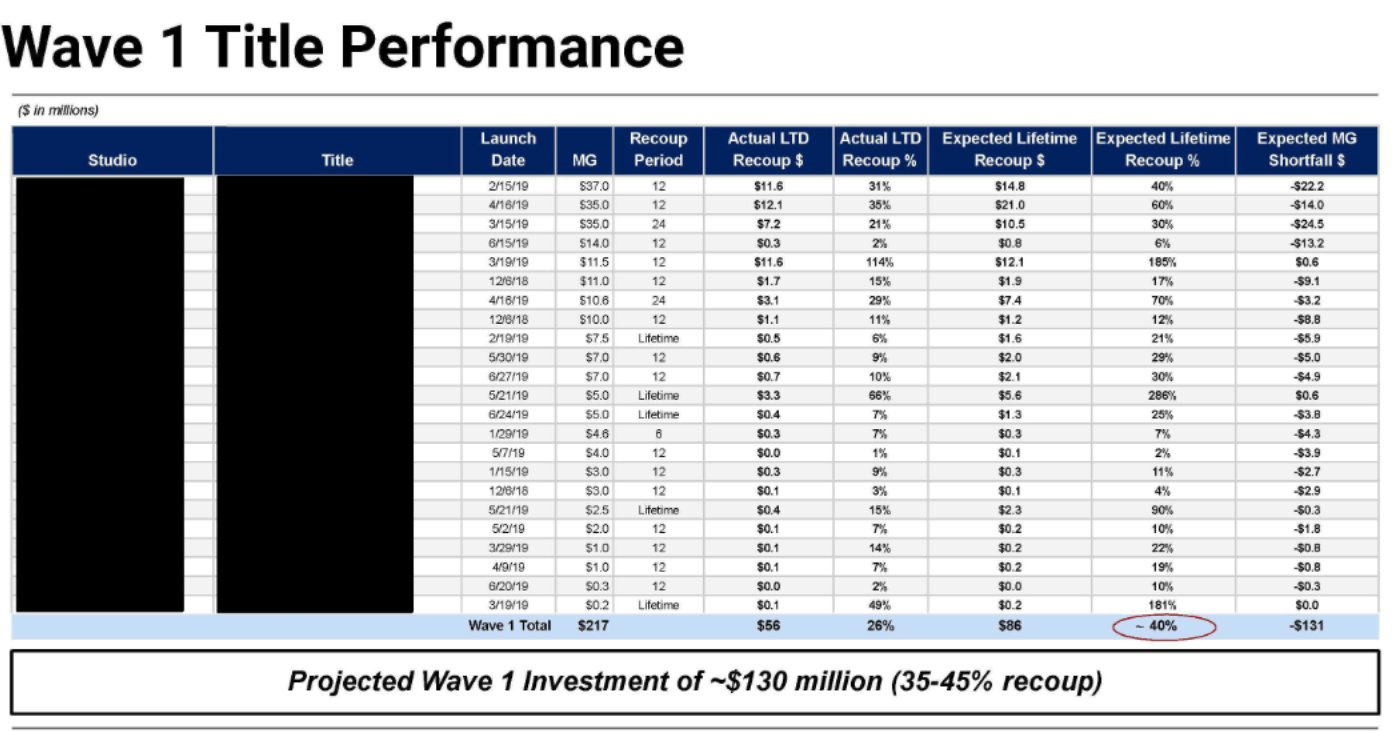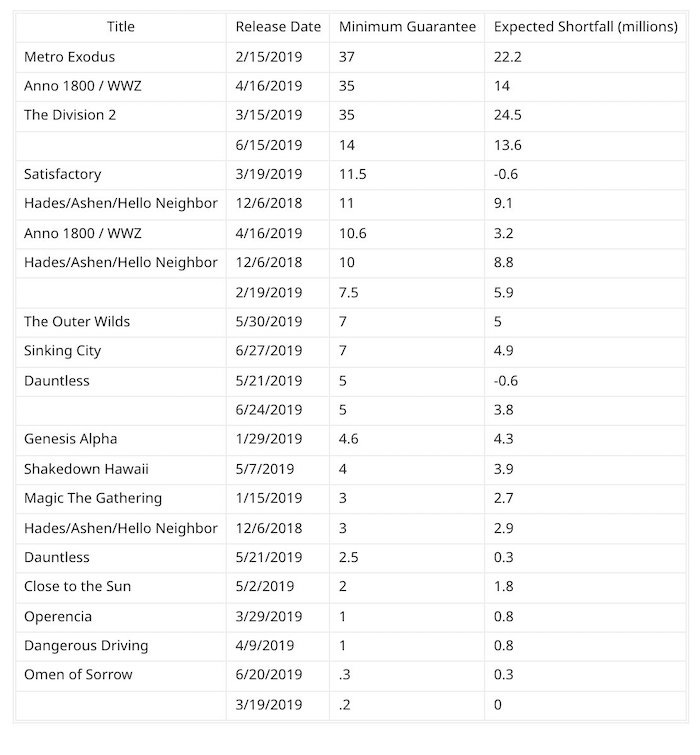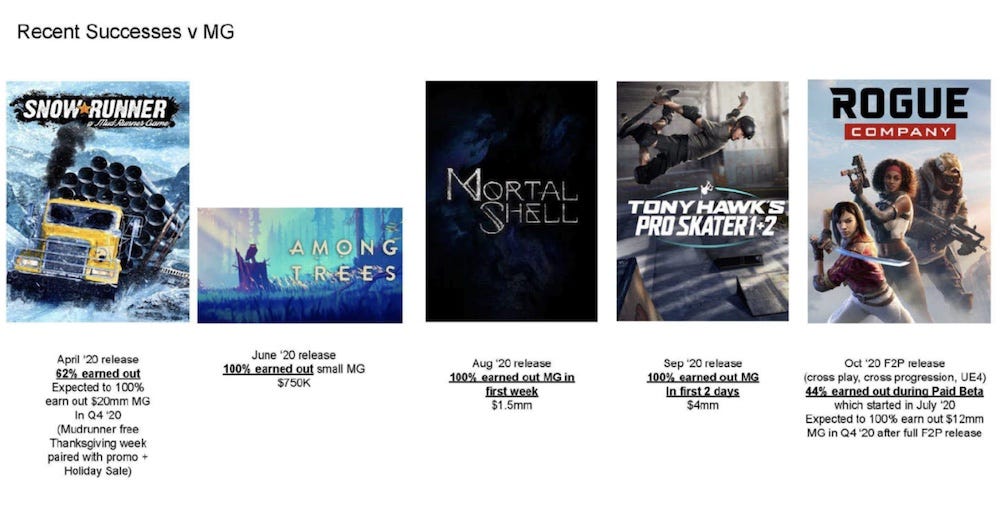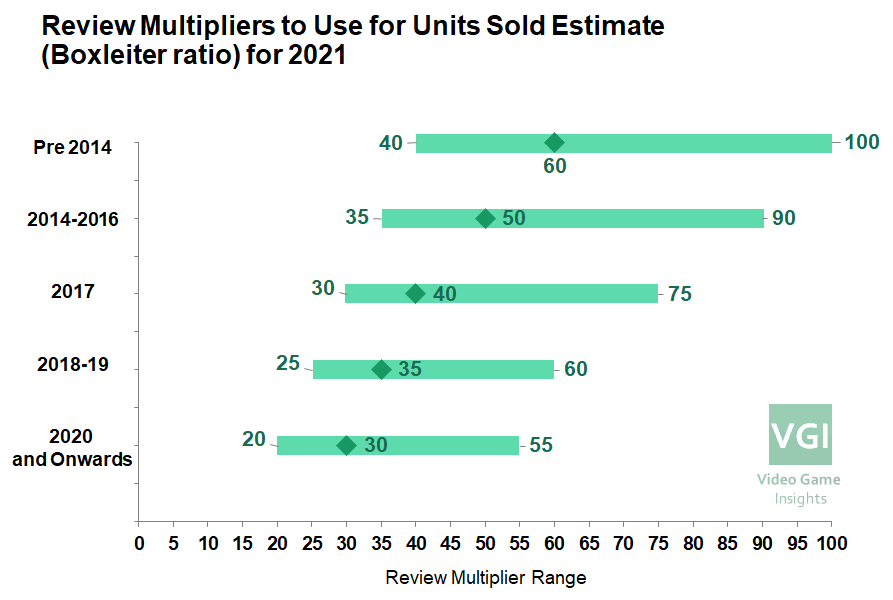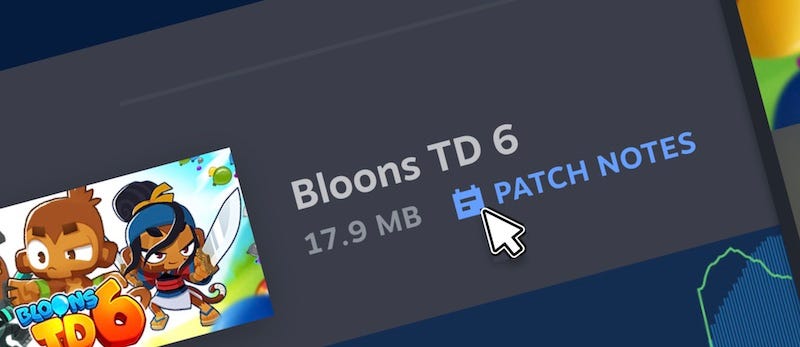Epic advances, Steam reviews, oh my!
Publikováno: 4.8.2021
A cornucopia of subjects, this time out.
[The GameDiscoverCo game discovery newsletter is written by ‘how people find your game’ expert & GameDiscoverCo founder Simon Carless, and is a regular look at how people discover and buy video games in the 2020s.]
And you’re back in the room. Welcome back to the GameDiscoverCo newsletter. We have a whole bunch of stacked-up news and data - all the way back from last Wednesday, thanks to our Monday guest newsletter - to get through!
So let’s get to it. As a reminder, please try to refer as many colleagues and friends as possible to sign up for the free newsletter. We have a Big Hairy Audacious Goal of getting to 10,000 free newsletter subscribers - and are about 75% of the way there. So every little helps.
[REMINDER: we just launched our ‘Complete Game Discovery Toolkit’ eBook, plus some sophisticated new Steam Hype back end features to analyze unreleased Steam games - subscribe to our Plus tier now for access, here’s all the details.]
Apple/Epic’s lawsuit disgorges more goodness..
To be honest, we’re pretty ‘Apple/Epic lawsuit’-ed out, and think you might be too. (The judge is still considering the case, so there’s no new information there. Here’s our lawsuit ramifications write-up from May, if you didn’t check it.)
But there seems to have been a couple of updated documents on the official court Box document drive. And somebody spotted the above redacted slide from an August 2019 Epic Games Store internal presentation to company directors. (NOTE: these court Box links don’t work on mobile, but do on desktop - I have no idea why.)
Why is it interesting? Because (above!) it lists the MG (‘minimum guarantee’ advances) for all of ‘Wave 1’ of EGS’ exclusives, including release date and the amount each game had recouped by that August. Overall in the initial wave, Epic paid out just over $210 million in advances, and was only expecting to receive $80 million back.
This may not necessarily be considered a failure - clearly Epic was fine with losing money on EGS (timed) exclusive games to build up a userbase. (But the 2009 plan wanted ‘Wave 2’ - with another 100+ titles and a few hundred million dollars of advances - to recoup 65-75% of advances, vs. 35-45% recouped in the first wave. We don’t think it did that, even with tweaks including deals going to lifetime EGS recoup vs. first 12 months, and lifetime exclusivity on select titles.)
In ‘even more interesting’ news, somebody on Reddit tried to link the games to the advances and the recoup shortfall by using EGS’ release date - with partial success. However, some may be incorrect, since there are multiple titles released on same day & some non-matching dates. Nonetheless, here’s their guesstimates:
Some of this looks correct (we already know that Satisfactory was one of the top EGS performers), and some of it less so (guessing Hades did way better than the predicted recoup numbers in the end, whichever of the titles releasing on that day it is.)
Another notable takeaway from Epic’s internal August 2019 presentation: the ‘Lessons Learned’ slide claims: “Top performing titles so far are online co-op and building/creative genre… Publisher competency in marketing is very important & indie titles are struggling right now.” Indeed, whatever the lower-MG titles actually are, you can see very poor returns for most EGS exclusive games with advances under $5 million. (Is this ‘publisher competency’, or just general title interest x EGS not being an established store, tho?)
And one more thing *dons Columbo overcoat* - there’s an absolutely gigantic 222 page PPT now officially available, compiling multiple meeting notes. But it starts with a September 2020 EGS store strategy meeting doc (much more recent data!)
Here’s an interesting (unredacted) slide from it about some 2020 Minimum Guarantee recoup successes:
Clearly a minority of titles - Snowrunner, Tony Hawk, etc - have been doing great on EGS. None of this changes our previous views on the Epic Games Store, though. As we said: “We believe that most EGS ‘minimum guarantee’ deals are winding down. The catalog is widening, and many more publishers/devs have been let onto the Epic Games Store to publish games with no exclusivity, but no advance.”
Not only is it rare to see a company go up against Steam so publicly, it’s incredibly rare to see many of their internal documents revealed via lawsuit discovery. So we appreciate seeing how the sausage is made, and passing that sausage along to you (?!)
Steam reviews to sales: a more refined lens.
As many of you may recall, we’ve been working on ‘how you work out potential # of Steam sales from the number of reviews’ for a little while. Here’s the GameDiscoverCo analysis from last year, based on earlier work from Mike Boxleiter, Jake Birkett et al.
Well, we’re happy to say that the smart folks at game analysis platform VGInsights have taken things one step further using MATH(S), and have produced a more detailed analysis of the estimated Steam reviews multiplier.
It doesn’t vary majorly from our 2020 analysis, but it puts median ‘review multiplier to sales estimates’ numbers a bit lower. For example, they think it’s 30x for 2020 and later, with a 20x to 55x range, whereas we estimated 20x to 60x and the median as 38x. (Full ranges from VGInsights above - I believe SteamDB has taken notice of the multi-year numbers and is now using them in the ‘owner estimations’ section, btw.)
I do wonder whether the majority of their data being from a 2018 leak - before the October 2019 ‘Steam review prompts’ got going - is skewing things slightly. Some older games got an unpredictable mass of new reviews at that point.
But we’re planning a new survey in the next few weeks, to get updated data from you on recent Steam releases from multiple perspectives! And thanks to VGInsights for adding to our general knowledge - these ranges are great, and hitherto unavailable.
The game discovery news round-up..
Let’s switcheroo to actual links, and finish things off in style with all kinds of announcements and news - since nobody seems to be taking the summer off in Game Discovery-land:
Sony’s Q1 financials went ‘fine’ (record operating profit, 2.3 mil PS5s, 71% of all PlayStation games sold digitally.) But as Gamasutra’s Chris Kerr notes on Twitter, investors got concerned about PlayStation Plus subscribers actually declining from Q4 2020 (47.6 million) to Q1 2021 (46.3 million.) Clearly, PS5s are still massively supply-limited. So we’ll see if PS+ trends change with PS5 rollout, or if it’s a bigger ‘PS+ is yesterday’s subscription iteration, content-wise’ issue.
So, Steam rolled out lots of things: you can now see Patch Notes easily in Steam’s Downloads view if you choose (great QoL fix, above!), the mobile web view of the Steam store has been significantly optimized“as we work toward releasing a new version of the mobile app”, and the new Steam client beta has quite a few UI optimizations in a new Downloads page, plus some minor Library improvements.
Interesting announcement revealing The Indie Houses, some allied independent publishers (currently Akupara Games, Fellow Traveller, Neon Doctrine, Raw Fury, Those Awesome Guys, Toge Productions, and Whitethorn Games) who are planning an Indie Houses Direct stream on August 31st, as well as an Underrepresented Devs fund initially focusing on Africa. (With more possibly on the way!)
Microlinks: China’s game stocks went on a wild ride after a gov-linked publication slammed games as ‘spiritual opium’ and ‘electronic drugs’; Steam’s curated Midweek Madness sales are now from Mon-Fri (promoted Mon-Thu), not Tue-Fri; the smart Tinytouchtales (Card Crawl) just made all of their iOS/Android games free - not a great sign for anyone still trying to do premium mobile.
We see very little hard information or metrics from the hypercasual (free mobile) space. So it’s interesting to see this analysis on Chain Cube (a 2048 x physics game!) It’s really talking about improving discoverability, hook, and monetization across multiple iterations, solving issues like “in the reviews, some people said that the game was too easy for them, but the increase in difficulty caused the metrics to decrease.” And now the game has 350,000 DAU, I guess? Definitely recommended.
Sony’s first PlayStation 5 OS update beta got a lot of press for allowing SSD expansions, but also has UI improvements embedded in there, for example “…addressing some of the confusing aspects of PS4 or PS5 versions of games. Different versions will now appear separately… and each game’s title will also now include whether it’s PS4 or PS5.” Also trophy tracking is now working, since it kinda wasn’t. (We’re still at the ‘fix obvious flubs’ stage, but hopefully moving on from there soon!)
A couple of smaller, ultra-transparent looks at game launches: the first year on sale for Core Defense with a $70,000+ gross, including PC (mainly Steam) and iOS/Android (ad-supported) versions; the first month on sale for Yerba Mate Tycoon - the dev only grossed a few hundred dollars and is disappointed, but kudos to him for being open about it.
Why don’t some younger people play video games? An interesting question, and this Axios piece citing a Generation Lab U.S. survey has some data on it: “25% of respondents say they don’t have any games downloaded to devices they own. Of the non-gamers responding to the poll, 42% said they don’t play because of a lack of time; [15% said ‘lack of skill’] & 14% blamed financial constraints.” Those who do play average 9 hours per week though, which.. ain’t bad!
Microlinks Pt.2: this ‘publisher negotiations aren’t helpful/nice’ rant is overly broad, but also has a few fair points in it; Oculus Quest 2 is now around 1 in 3 of the VR devices used on Steam, an impressive rise; good to see one of those rare ‘are game subscriptions like Game Pass good for the biz?’ think pieces.
And that’s it for now. See you next Monday, bright and early, for the next wondrous free newsletter (paid Plus subs will get our Friday special, example here!), and thanks again for reading.
[We’re GameDiscoverCo, a new agency based around one simple issue: how do players find, buy and enjoy your premium PC or console game? You can subscribe to GameDiscoverCo Plus to get access to exclusive newsletters, interactive daily rankings of every unreleased Steam game, and lots more besides.]
